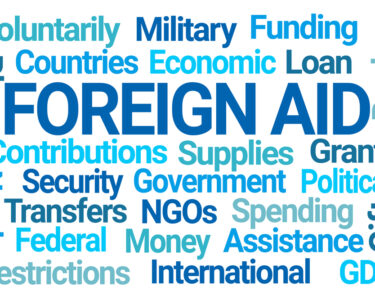As we collectively navigate a new political reality that has devalued and divested from equity, justice, and inclusion, funders must interrogate how we think about movement impact and progress. Community wisdom fuels our ability to make lasting change: if it’s progress we seek, it is time to set aside funder-led goal-setting and fundamentally reorient ourselves to support our grantee and community partners.
At Borealis Philanthropy, we are proud to have maintained and grown our commitment to the frontlines of movements for equity and justice. At Borealis’ Black-Led Movement Fund and Communities Transforming Policing Fund, a core part of this approach has meant continually moving into closer relationship with our movement partners.
As our funds transitioned to participatory grantmaking, we began revisiting our reporting, impact, and evaluation processes for greater values-alignment and community-rootedness. To better understand what this could look like in practice, we partnered with Social Insights Research, a research and evaluation firm that utilizes participatory and liberatory research methods, and together embarked on a learning journey that we would come to call The Movement-Defined Learning Project.
The Movement-Defined Learning Project
The Movement-Defined Learning Project is a participatory learning and evaluation undertaking designed to support the Black-Led Movement Fund and Communities Transforming Policing Fund grantee partners in defining their own impacts and successes. The Social Insights team, led by Win Guan, Ph.D, developed a participatory learning structure to engage our grantee partners, deepening our understanding as funders of how our partners experience learning and evaluation processes.
With support from team member Maya Corneille, Social Insights developed a series of Liberatory Learning Labs which served as a space where leaders from grantee organizations came together to reimagine ways to measure impact, exploring questions like: How do you measure the progress of your organization and our movements? What are you proud of accomplishing — and how do you define, capture, and share your success? What do you need from us and philanthropy at large — including and beyond funding — to continue and improve your essential work?
Critically, given funder-grantee power dynamics, partnering with Social Insights allowed us to support the work without leading, influencing, or solely overseeing any participatory process intended to center community members and shift power.
The end result was a new evaluation tool that transformed our reporting processes — to incredible results. The Movement-Defined Learning tool lifts up storytelling and narrative; allows for communal and multi-stakeholder feedback; and acknowledges the fluid, often immeasurable nature of social change work.
A Reporting Process that Strengthens Grantees, Funders, and the Field
In many ways, the tool was an answer to the question: What is — and what could be — the purpose of impact evaluation in social change work?
By strategizing with this question at center, grassroots leaders created a community-rooted, open-ended reporting process that produces deeply impactful learnings for all of us. In just two years of utilizing our grantee-created tool, we’ve already witnessed its many strengths.
The ability to hold multiple perspectives in regard to impact, successes, and challenges. Traditional evaluation methods ask organizations to answer questions about themselves, for the benefit of foundation record keeping. In these long-held methods, grantee partners are often put in the position of fitting their organizational work and values into funders’ priorities, at great financial and emotional cost. In contrast, the Movement-Defined Learning tool collects varied insights from across the organization and community, with the belief that true impact is best defined — and identified — by those leading the work, and those benefiting from it.
Knowing what’s happening on the ground means we can better support our partners and invest in their organizational resilience. The new tool makes room for frontline leaders to reflect on their individual experiences leading this work, and what they need from us in order to carry it forward. These questions yielded rich stories about the structural constraints, logistical barriers, and the mental health challenges our partners face — insights that have helped us shape our offerings.
For example, after several of our grantees shared the need for trauma-informed support, we invested in healing justice offerings as an explicit part of capacity-building support. And when organizations named a challenge in building stronger local narratives around policing, the Communities Transforming Policing Fund built fund-wide support for narrative change as part of a shared strategy.
Expanding the role of funders as knowledge aggregators. As we’ve come to realize over the past several decades, funders can — and must — hold several support roles beyond “resource mobilizer.” As funders and intermediary funders, we hold a bird’s eye view of the social change ecosystem. Any reporting we collect is an opportunity to produce shared learnings in service of our partners — learnings that can help them identify what is working and what is needed to carry forward progress.
Recognizing the fact that social change work is both long-term and non-linear. By devising an evaluation tool rooted in narrative, our partners have reminded us that social change is hardly linear. As history has shown time and again, progress towards social change is varied, nuanced, and in constant motion. Furthermore, the pursuit is rarely quantifiable in traditional terms. It comes with unique fluctuations, setbacks, and challenges, and requires the deep labor and commitment of all involved. Recognizing this, our grantee partners created the Movement-Defined Learning tool to capture multiple narratives that demonstrate immediate and long-term community impact, and allow for the documentation of localized and individualized barriers.
The Movement-Defined Learning Project, its accompanying tool, and our participatory grantmaking processes have brought us into more trusting and close relationships with our grantee partners, and extended our awareness of their learnings, experiences, and needs — alignment that feels especially valuable, and necessary, as we collectively navigate rapidly shifting socio-political landscapes.
Another Chance to Stand with Movements — And Win
Nearly five years ago, following the murder of George Floyd by Minneapolis police officers in the summer of 2020, grassroots activists anchored the largest racial justice movement in the history of the United States. This movement issued an urgent call to action for the philanthropic sector: align with Black communities, and invest in their visions of freedom, safety, and joy.
In response, funders swiftly increased their grantmaking to Black-led organizations, and pledged to provide long-term, substantial, and transformative support for their efforts — promises we saw quiet over time, and in response to perceived threats, quiet again.
Today, philanthropy is at a similar crossroads, with even higher stakes. Luckily, over the last five years, there has been incredible growth of participatory tools and approaches that recognize that process profoundly impacts progress. Funders and philanthropy-serving organizations alike are working to better align with movements, recognizing that how we listen to grantee partners, and then how we follow up with that learning, are key levers for social change. And that these are approaches born of intentionality and practice.
The Movement-Defined Learning tool creates deeper insights because it was built through deeper partnership. The information generated is aligned with community needs and perspectives because it was created by community members. The learnings are offered to the entire social change ecosystem. They are critical, because they reflect real-time understanding of the impacts local community change groups are having on the ground, how these impacts connect to our collective, long-term goals, and how foundations can amplify these impacts through funding and other forms of support.
As funders, our focus in this moment ought to be clear: to support grassroots leaders by being in greater lock-step with them, the movements they lead, and the communities they serve. This is how we win.
Jeree Thomas is program director of the Communities Transforming Policing Fund at Borealis Philanthropy and Julia Beatty is the former program director of the Black-Led Movement Fund at Borealis Philanthropy.
👇Follow more 👇
👉 bdphone.com
👉 ultractivation.com
👉 trainingreferral.com
👉 shaplafood.com
👉 bangladeshi.help
👉 www.forexdhaka.com
👉 uncommunication.com
👉 ultra-sim.com
👉 forexdhaka.com
👉 ultrafxfund.com
👉 bdphoneonline.com
👉 dailyadvice.us




